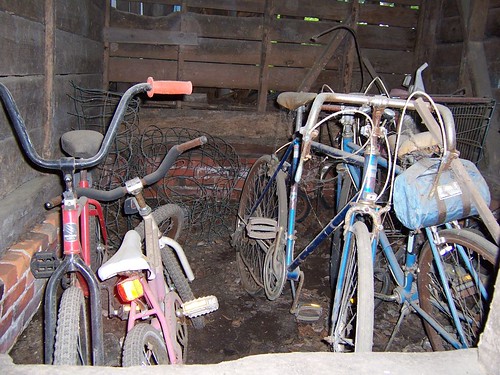
cc licensed ( BY ) flickr photo shared by Luca Masters
Details:
1. Utility bicycles (City/Commuter, Flat-bar Road, Single Speed, Mixte, Hybrid, etc.) are typically a wise choice as they can serve a variety of purposes and tend to be robust. However, you should make your choice based on all of the foreseeable types of trips you may end up wishing to use it for. For instance, if some of these involve longer distances or needing the bike to be lighter you may wish to lean toward the lighter and faster end of the spectrum. See: Key decisions that will help narrow down the most suitable bike to buy
2. Buy a versatile bike that allows you to readily add or change things like racks, tyres, handlebars, mudguards, etc. E.g. A bike that allows you to put on thicker or puncture-resistant tyres may allow you to go off-road sufficiently well for your needs. A separate mountain bike may be overkill for things like recreational off-road trails.
3. Cycling enthusiasts and bike store staff will often try and tell you that a more specialised bike and equipment is what you need for different uses. Thus their answer to the question of how many bikes you need is usually N+1 (i.e. 1 more than whatever you have now; there is no limit).
> See Bicycles - why you might need more than one. However, if you buy a light, fast-enough bike and puncture-resistant tyres you can use it for all types of transport and recreation.
4. Even if you did have multiple bikes, you'd probably settle on one bike that you enjoy riding the most for the majority of urban trips. Thus, it's desirable if you can fit it out in a way that you can use it for as many purposes as feasible.
5. Old bikes can always be kept to fill niche, infrequent uses. E.g. I have my old hybrid bike hitched up to a bike trailer for cargo duties. So over time there will be opportunities to retain old bikes anyway, you don't actively need to establish a stable of different bicycles upfront.





